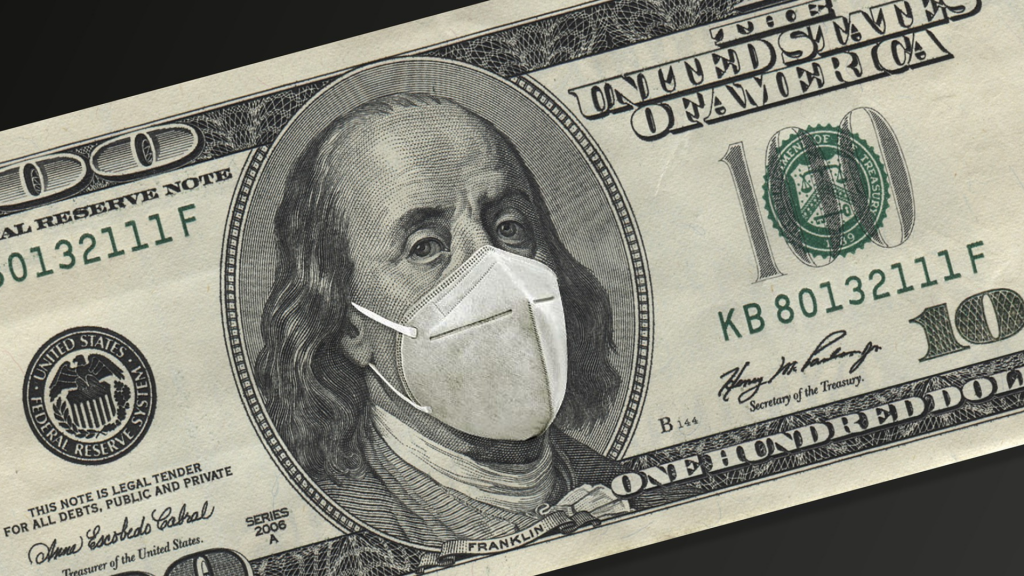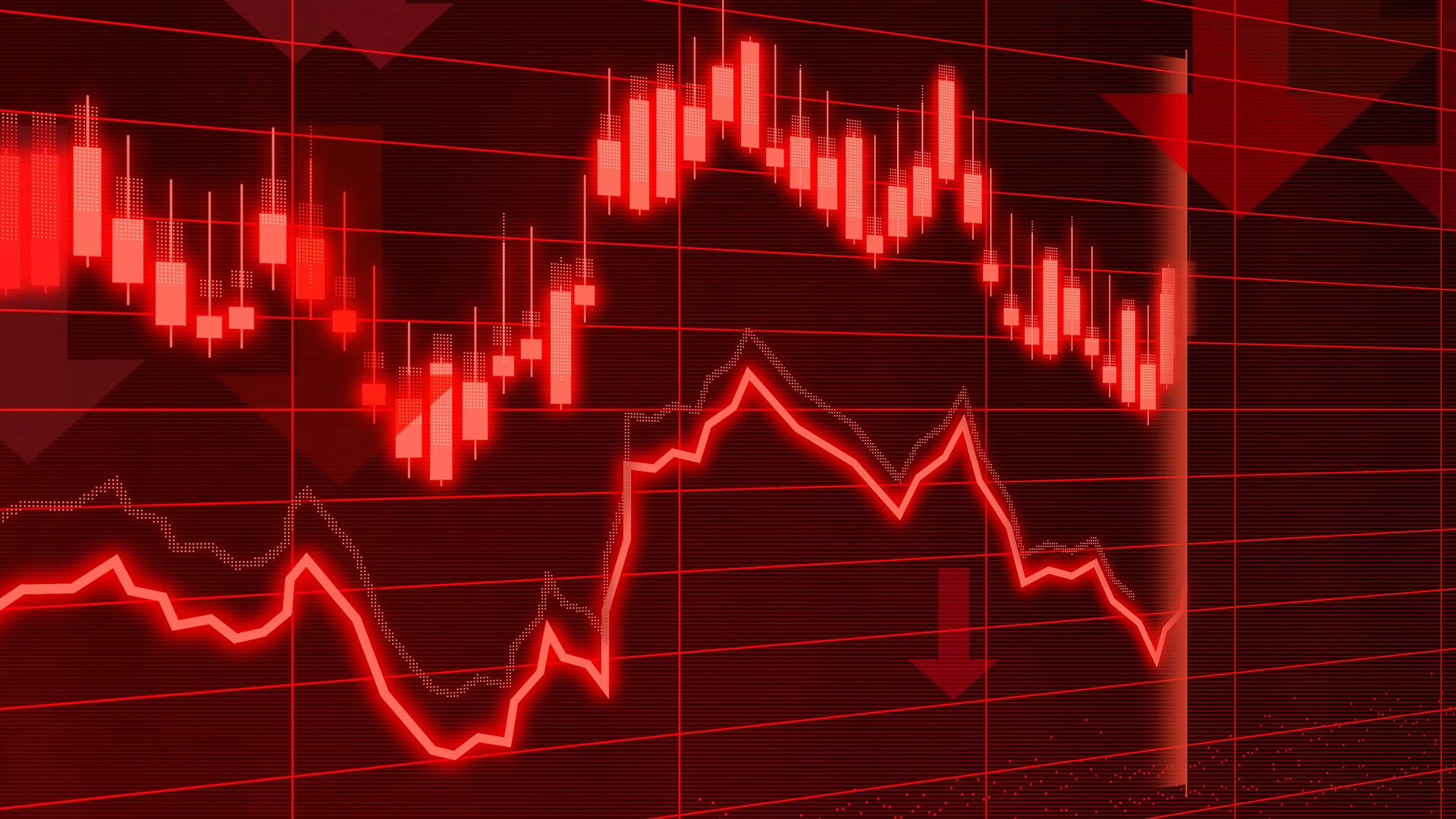News
How the US economy has changed since Covid-19
The consequences of the coronavirus can still be felt in many axes of the United States economy. Understand how it still affects the main branches of the market.
Advertisement
The global spread of Covid-19 and its impact on the US economy

In fact, the US economy is still experiencing the post-Covid-19 effects. This is what the main indices and market surveys demonstrate. Since the most critical period of the health crisis, the country has had to take drastic measures. In an attempt to reduce the contagion, the federal government decreed social isolation.
Thus, many companies that depended on face-to-face work/service closed their doors. Many other companies have had to burn through their cash reserves to adapt their businesses to the online world. Outside the directors’ offices, unemployment has reached levels not seen in recent decades.
At one of the peaks of the crisis, June 2021, the level of unemployment was 14.7%, a value similar to that observed in emerging or underdeveloped countries. In fact, this number is a far cry from the 3.5% of the month before the crisis. GDP also followed the downward trend.
In the second quarter of 2020, the Gross Domestic Product fell by 31.2%. Since the number began to be measured in 1947, it has never dropped more than 10%. In fact, covid-19 does not only affect the supply of work, but also work itself. Many employees have migrated to remote work.
From home, office workers attended online meetings and teachers streamed their classes. Today, the United States and the entire world are still experiencing the consequences of this crisis. To understand how this disease continues to affect the economy, see the following topics.

Millennials and retirement: are they getting behind when it comes to saving?
Millennials are not very prepared for retirement. Understand what is happening and how you can financially prevent yourself for your old age.
The influence of Covid-19 on the US stock market

Before the coronavirus pandemic, the national stock market was going through an excellent moment. The economy was booming and dividends paid were increasing. However, the first turmoil was felt after 19 February. The president went public with declaring critical states and all shareholders immediately rushed to sell their shares.
Thus, in this period, the indices registered a drop of 37% in the average value of the shares. The impact was even greater on February 23, when values fell 58%. The effects of the pandemic were also felt mainly in the industrial sector.
In fact, the index that summarizes the position of industrial stocks on the stock exchange, the Dow Jones Industrial Average (DJIA), reached a record high of 29,551.42 points on February 12, 2020. On March 11 of the same year, the fall had already there was 20.3%.
However, historically, in times of crisis, the stock market tends to recover faster than the economy in general. In November the DJIA had already passed the 30,000 point mark. This effect on the economy was likely triggered by the announcement of the creation of a vaccine with 95% effectiveness.
Likewise, the shares also regained their value with an 87.5% appreciation in September. Today, June 2022, the DJIA has reached a value of 32,925.31 and is experiencing a bullish period.
In addition, the main stock valuation index, the S&P 500, also shows good results: 4,120.68, almost double the 2,304.92 at the beginning of the pandemic.
Currently, these indices are starting to show a slight deceleration, which could mean an anticipated effect in relation to the Fed’s actions.
You will be redirected to another website
You’ll receive messages for less than 1 week, with a maximum of 1 message per day. You can unsubscribe anytime by replying STOP. By submitting this form, I confirm that I am 18+ years old and agree to the Privacy Policy and Terms and Conditions. I also provide my signature, giving express consent to receive informational messages via automated emails, SMS, MMS text messages, and other forms of communication. Message frequency may vary as part of our good-faith effort to respond to your inquiry. Message and data rates may apply. Text STOP to cancel. I understand that my consent to receive communications is not a condition of purchase and that I may revoke my consent at any time.
Impact of Covid-19 on small businesses and workers

In fact, one of the sectors of the US economy that has suffered the most from the Covid-19 crisis has been small businesses. Thus, these companies are responsible for almost half of the jobs in the country. In addition, they are very important for GDP and for the economy as a whole.
During the pandemic, they were the first companies to feel the impact of social isolation. Many of them did not have the technology or capital to continue operating remotely. Thus, these were closing their doors with the exception of companies considered essential.
As of January 2020, revenue from these businesses had already declined by 20%. In March and April, companies with up to 20 employees had already laid off 16% of their employees. Slightly larger companies, with 20 to 49 employees, have given up nearly 20% of their employees.
Between August and September, half of the companies that remain open did not rehire employees to fill vacancies. In the future, the trend is for small businesses to continue to suffer. However, the “enemy” is now inflation, which has reached all-time highs.
This week, the US government began paying the first installment of aid to small businesses. In all, around US$ 10 billion will be invested in these companies.
The potential for a recession in the US
Even without overcoming the economy effects generated by covid-19 in the US, everything indicates that we will go through another moment of turmoil. In fact, inflation in the country has reached an all-time high, above 8%. Furthermore, in 2020, GDP in the first quarter of 2022 fell by 1.4%.
The entire climate of crisis is further amplified by the uncertainties generated by the Russian-Ukrainian conflict. A considerable portion of economists says that we will have inflation, but they are optimistic when the “size of the stumble”.
As the Federal Reserve begins to implement its containment plan, GDP is expected to shrink further. However, everything indicates that, by 2024, the country will be in much more stable conditions. To understand the real reasons for the American recession, click on the link below and read an exclusive article.

The US Economy: why growing fears of a recession are justified
Will the US enter an economic recession? Understand what economists say on the subject and how to prepare your pocket for the future.
Trending Topics

VA Construction Loan: Your 101 Guide
Discover the VA construction loan, a special financing option for veterans. Learn what it is and how it works for building your dream home.
Keep Reading
Allegiant World Mastercard®: check out how to apply!
Apply to Allegiant World Mastercard® and gain access to a rewards program that will give you free airline tickets. Know more!
Keep Reading
Hawaiian Airlines: cheap flights and offers
Hawaiian Airlines is the best way to find cheap flights to Hawaii. Meet this company that offers discounts of up to 20% and much more!
Keep ReadingYou may also like

Rocket Personal Loan review: Up to $45,000!
Rocket Personal Loan review: Your gateway to financial freedom! Discover the ins and outs, from its competitive rates to its terms!
Keep Reading
Upgrade Bitcoin Rewards Visa®: check out how to apply!
Learn how to earn bitcoins on all your card purchases: apply for the Upgrade Bitcoin Rewards Visa®, the innovative cashback/personal loan card.
Keep Reading
Citi Simplicity® Card: check out how to apply!
Apply to Citi Simplicity® Card, a credit card that combines extended periods of 0% intro APR, fee waivers, and more benefits. Check it out!
Keep Reading